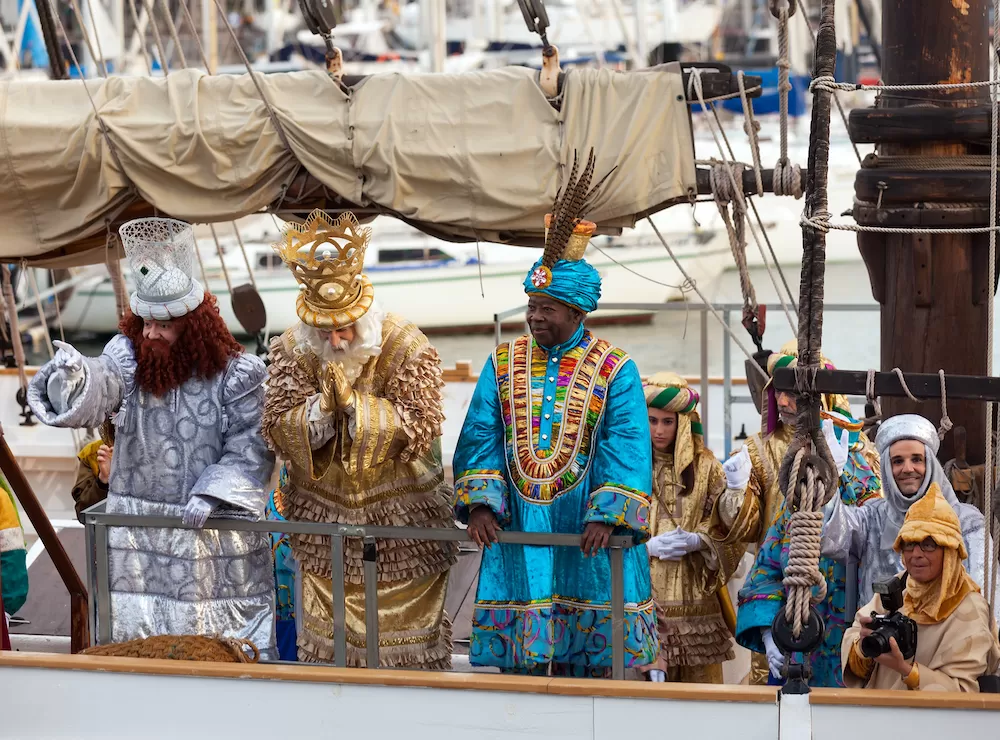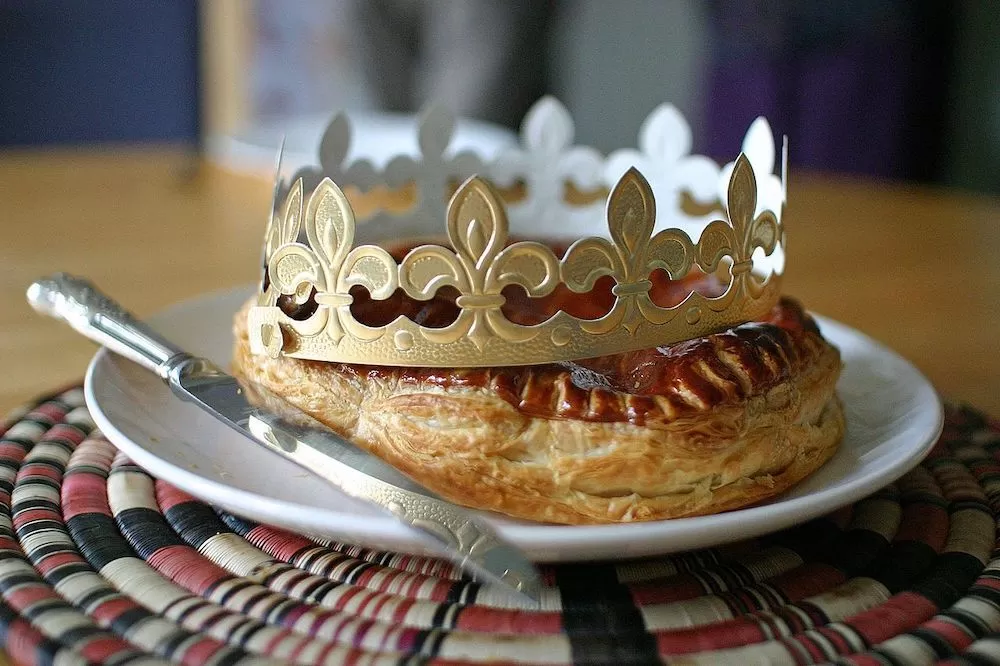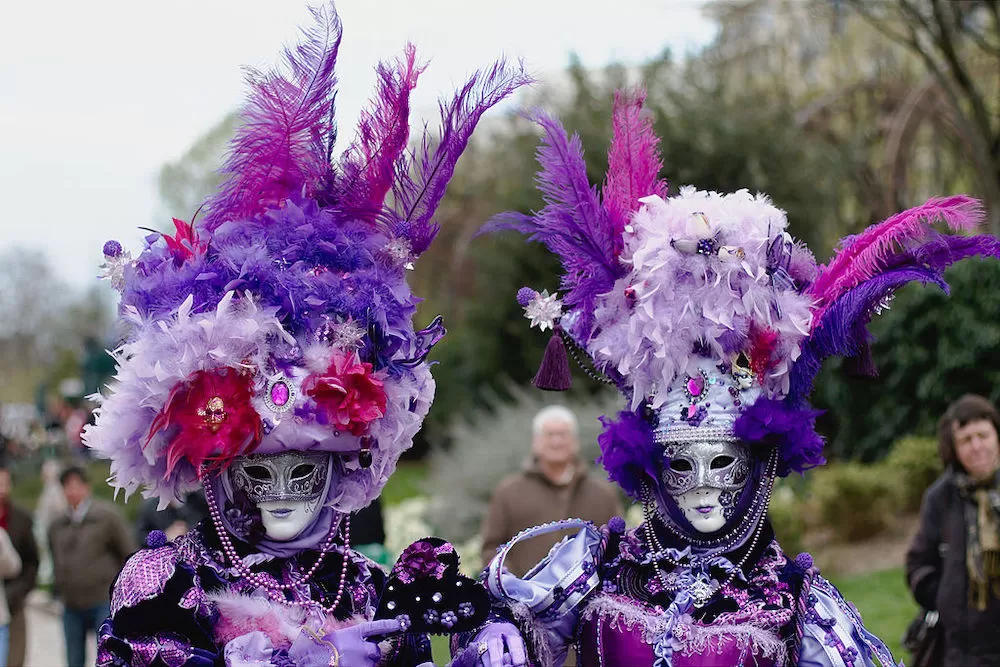Although the rest of the Catholic world celebrates l'Épiphanie, it's a bit more important here in France. Held every 6th of January, Epiphany Day commemorates the time that the Three Wise Men reached Baby Jesus in Bethlehem. It's a pretty solemn
holiday in France, celebrated by hearing mass, praying in silence, and most importantly, spending quality time with loved ones. But there's also another side to l'Épiphanie that perhaps those who aren't French aren't privy to. This holiday is actually steeped in tradition and culture, with various practices done every year. Here's what to know about it.
The Christian Origins
Know as the 'Three Kings Day,' l'Épiphanie commemorates the day that the Three Wise Men—Gaspar, Melchior, and Balthasar—reached the Baby Jesus and offered him their gifts. Gaspar was said to have given frankincense, Melchior gave gold, and Balthasar gave myrrh. It's because of such acts that the tradition during the l'Épiphanie is to give gifts to little kids. Parents and other adults give out toys, candies, and all sorts of treats. And it's the same here in France as it is everywhere else. Even the youngest kid gets to play a big role in the biggest French tradition of l'Épiphanie.
Speaking of the main French tradition of l'Épiphanie, it's all about the “
Galette des Rois.” It's a special cake specifically eaten during this holiday and has been around since the 14th century. Every January 6th, you can bet that practically every household in France has its own Galette des Rois. It's a puff pastry cake, made with butter, sugar, and ground almonds. A foil crown is usually used to decorate it as it's served to the guests. And when it's time to eat it, it's usually sliced to make sure that every single person at the dinner table gets a piece. This is very important because the Galette des Rois tradition includes a fun game.
The Lucky Charm
A tiny trinket called the '
fève' is placed inside the Galette des Rios when it's prepared. On l'Épiphanie, the youngest member of the family hides under the table and announces each guest randomly to get their slice. Whoever has the fève inside theirs becomes the king (
le roi) or the queen (
la reine). They get to wear the crown that once decorated the cake and are given special treatment throughout the day. This usually means that the other guests have to do what they say or the winner gets to escape their responsibilities (particularly house chores) for the day.
The Brioche des Rois
In the South of France, the
French Riviera and, specifically, the Provence region, they serve Brioche des Rois instead of the more common Galette des Rios. The brioche is the most popular pastry in this part of the country, so it makes sense that people prefer to eat this during the holidays. You can think of the Brioche des Rois as a donut version of Galette des Rios, especially with its shape and texture. The former also comes with much more toppings and decorations. Apart from the foil crown in the tradition, the Brioche des Rois is commonly topped with candied fruits and sprinkled with powdered sugar.
The Carnival in Paris
Much like the more famous one in Venice, Paris holds its own carnival at the beginning of the year. And similar to the Galette des Rois on l'Épiphanie, this tradition has remained since the Medieval times. People dress in outlandish costumes, wear colorful masks, and parade all the extravagance in various
neighborhoods in Paris. But what is its connection to Epiphany Day? Well, the holiday marks the start of the carnival season. This month-long event starts from early January up until late February. It usually ends around Ash Wednesday and the Tuesday right before that also has a connection to l'Épiphanie.
Source: Wikimedia Commons/ Pierre (Rennes)
The Connection to Crêpe Day
Remember the Galette des Rois tradition? Where a king or queen is chosen if they got the fève inside their slice of Galette des Rois? Well, this win isn't always beneficial. Though they get to be the main character during Epiphany Day, they do gain another responsibility. Becoming the kind or queen during l'Épiphanie means you also have to make the crêpes (or buy them) during Crêpe Day. This is the national holiday held every Tuesday right before Ash Wednesday. It's also among the final days of the carnival season in France.
Is It A Public Holiday?
With all that has been said, is l'Épiphanie in France a public holiday? The answer is no, it's not. It's important to remember that France has long been a secular country. The church and state are separated here and while religious holidays are celebrated, they're not all made into public holidays. So Epiphany Day, despite how widely celebrated it is in France, is not a day off for the French. School is still open and adults still have to go to work. But they do, however, still practice the traditions no matter where they are.
When it comes to the holiday season, l'Épiphanie in France is pretty important. Although the rest of the world also celebrates Epiphany Day, the French have their own fascinating traditions surrounding it.



